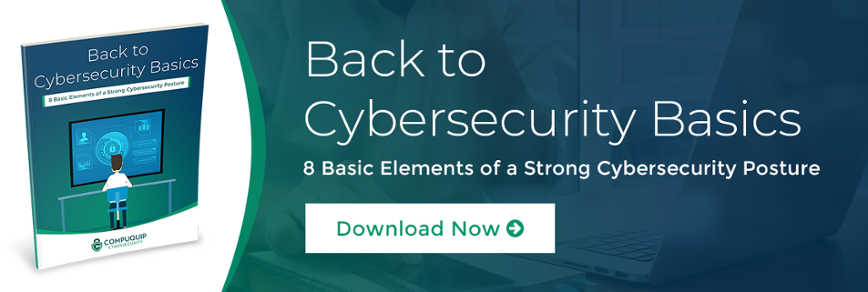4 Reasons to Run a Security Assessment
Security assessments and audits are a key part of maintaining your company’s “security hygiene.” Running such assessments of your company’s security policies and infrastructure should be done for many reasons, including:
1) To Identify Critical Weaknesses in Your Cybersecurity Protections
A security assessment involves completing an in-depth cybersecurity audit of your company’s defense measures to make sure that everything is up-to-date and that there are no glaring gaps in your security architecture.
So, one of the most important reasons to run a security assessment is that it helps you identify critical weaknesses in your cybersecurity protection measures. For example, say you have a software program on your systems that is several months out of date. During a cybersecurity audit, your IT team could identify the out-of-date software and prioritize patching the vulnerability.
2) To Keep in Compliance with Industry Regulations
Companies in different industries have different regulatory burdens that they have to comply with. For example, the Health Insurance Portability and Accountability Act (HIPAA), as noted on the HHS.gov website, requires “covered entities to maintain reasonable and appropriate administrative, technical, and physical safeguards for protecting e-PHI.” One specific measure is ensuring that protected health information (PHI) is secured against “reasonably anticipated threats to the security or integrity of the information.”
In a modern business setting, it’s all too easy to see how open gaps in your cybersecurity infrastructure could constitute a “reasonably anticipated threat,” seeing as how many security breaches happen because of easy-to-find vulnerabilities.
3) Because You’re Not as Safe from Attack as You Might Think
A lot of business owners seem to think that a major data breach could never happen to them because their business just doesn’t have enough data to match up to the big data breaches that always get featured in the news—the ones where millions (or even billions) of customers have their data exposed.
However, what a lot of people don’t realize is that, according to statistics cited by the U.S. Securities and Exchange Commission (SEC), “60 percent of all targeted cyberattacks last year struck SMBs.” The main reason that you don’t hear about all of these attacks against small to midsized businesses (SMBs) is that the number of compromised records pales in comparison to the bigger breaches. For every Target, Yahoo, or Equifax, there are countless attempts to steal data from or extort a small business owner.
Part of the reason is that while SMBs might have fewer records to steal, they’re often easier targets for cybercriminals to exploit. Many smaller businesses lack the infrastructures needed to ensure business continuity in the face of a ransomware attack or may not have the right security tools in place to stop an attack. This makes it easier to get data or to extort payment following a cybersecurity compromise.
4) To Increase Cybersecurity Awareness
One of the side benefits of running a big cybersecurity audit for your organization is that it’s a good chance to get people in your company talking and thinking about cybersecurity. During the audit, your IT security team can interview members of your company to ask about the company’s security policies for employees.
During these interviews, it’s easy to collect data about the general level of cybersecurity awareness in your organization. Once you know the general level of (and attitude towards) cybersecurity in your organization, you can start developing an employee training/education program to help increase awareness of cybersecurity requirements.
While you might not be able to stop every attack, you can discover ways to better protect your company and minimize risks by performing a cybersecurity assessment. If you need help with setting up such an assessment, or just need a few pointers, contact us today. Or, download our free cybersecurity basics guide at the link below:

